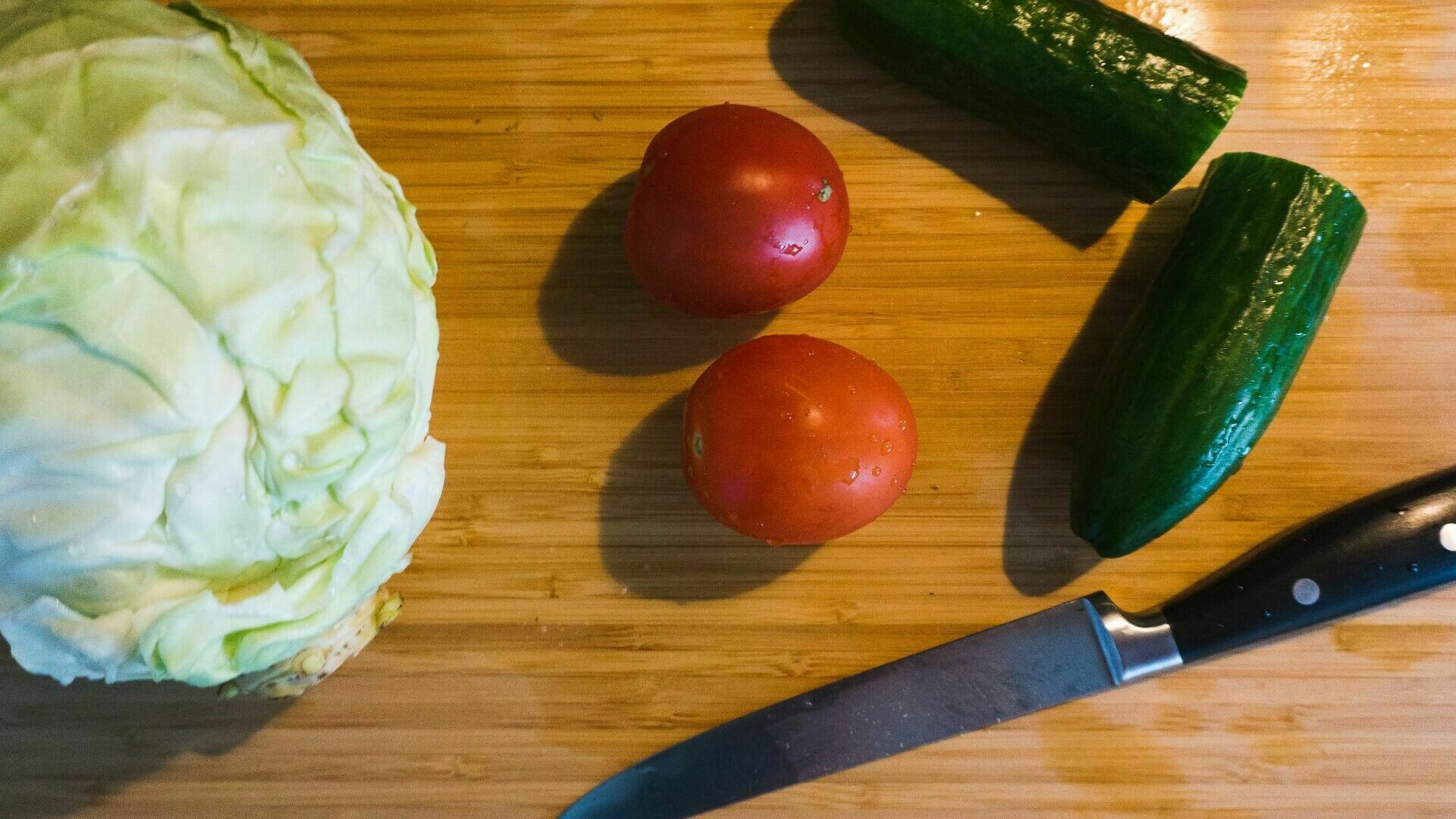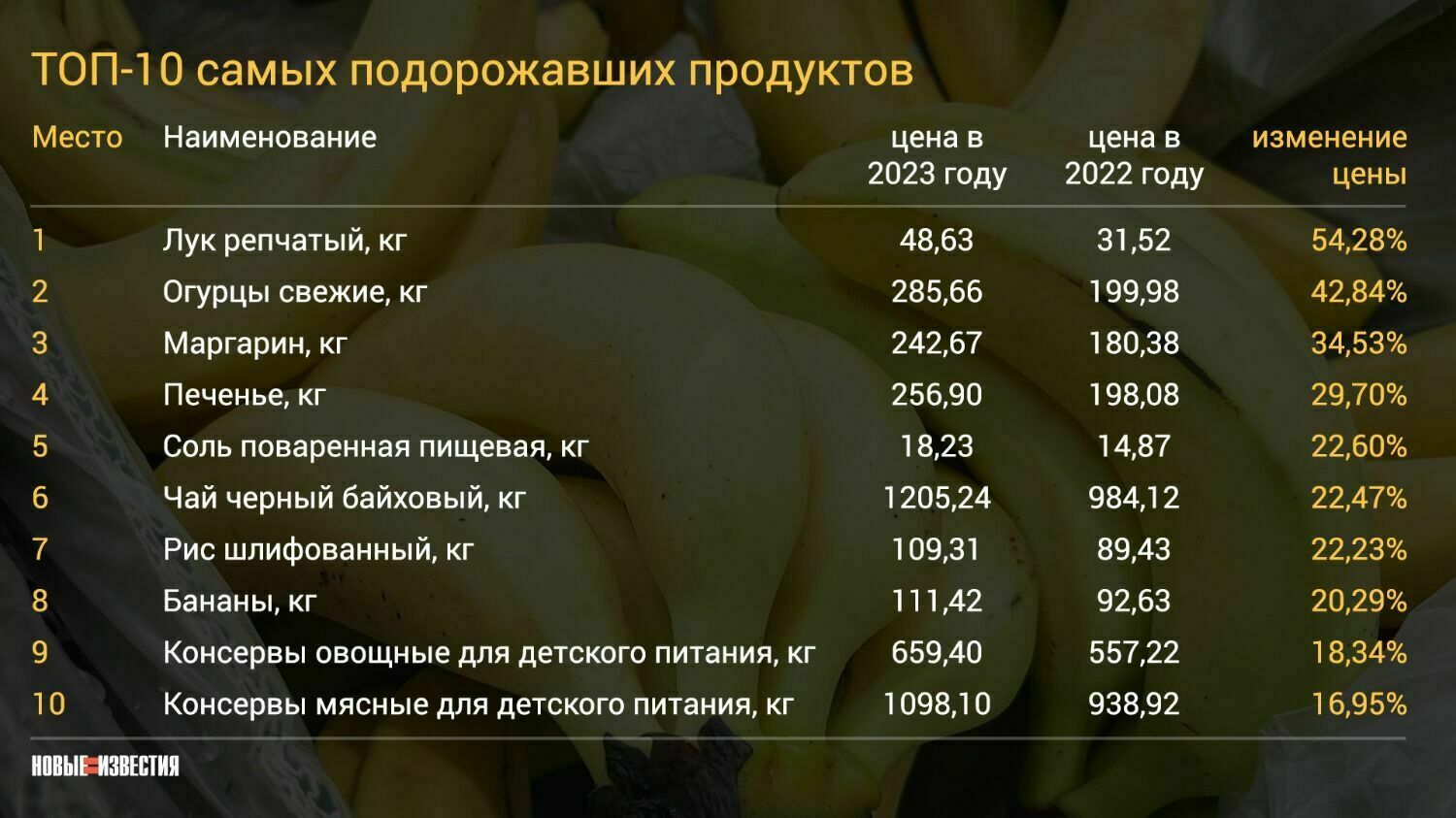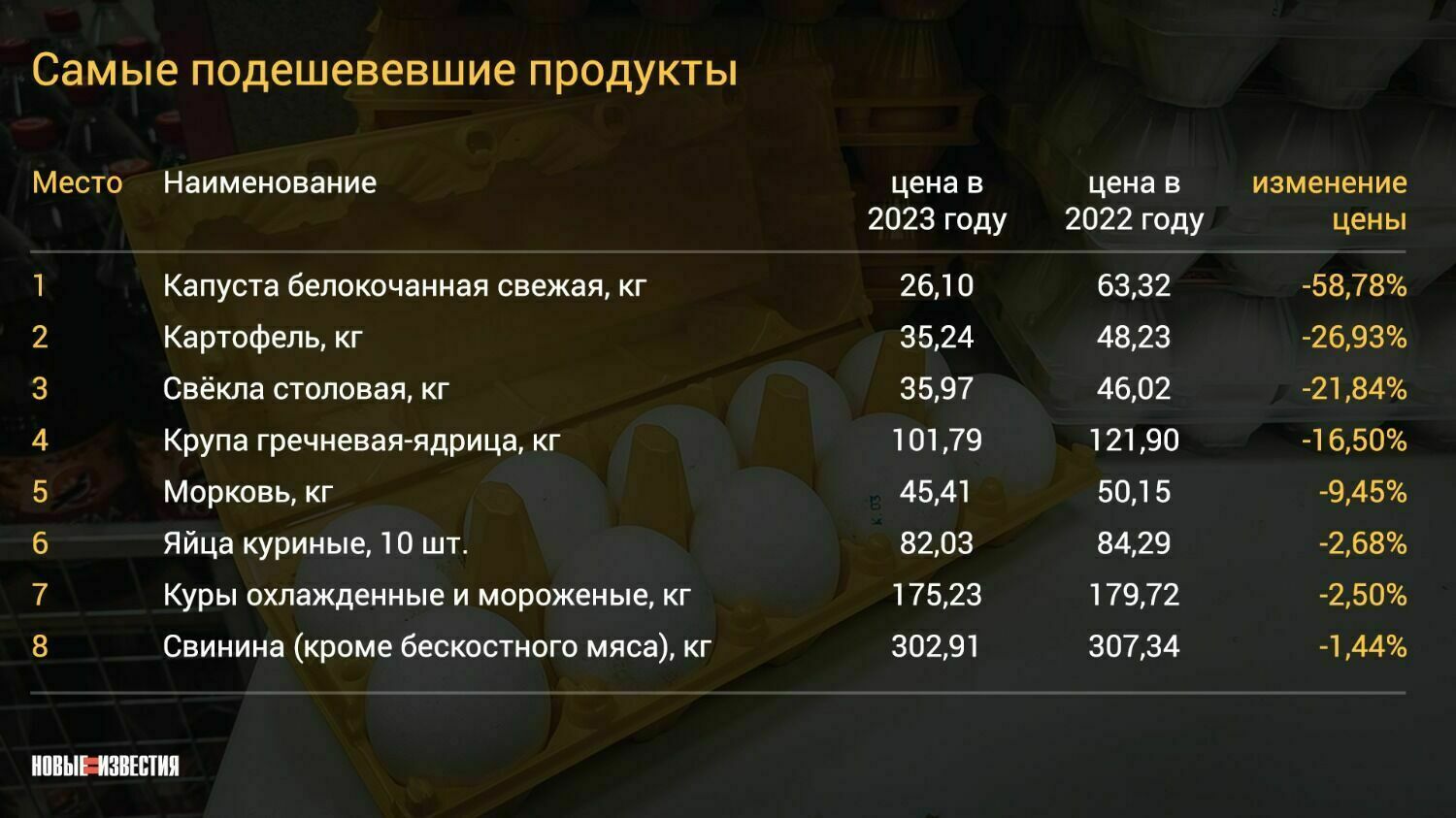Posted 4 марта 2023, 18:01
Published 4 марта 2023, 18:01
Modified 6 марта 2023, 08:54
Updated 6 марта 2023, 08:54

Scammy cucumbers. How did food prices actually rise, and what are we going to eat now
Rising food prices and a new anti-crisis economy menu
Victoria Pavlova
Cucumbers became one of the reasons why inflation in Russia turned out to be negative in the last week of February: prices fell by 0.02%.
It was cucumbers that became the leaders of cheaper goods: their cost dropped by 7.57% at once. But the Association of Confectionery Industry Enterprises complains about the price increase: sugar has risen in price, according to their estimates, by 27%. And it continues to get more expensive in 2023. Are we waiting for eclairs stuffed with cucumbers instead of cream? And what will the economy menu look like now?
To figure this out, NI turned to Rosstat data on average weekly prices for basic goods (at the time of publication, the latest data are available for February 13, 2023) and compared them with similar prices a year ago. After all, one week is too short a time to draw far-reaching conclusions. And then it becomes clear: eclairs with cucumber filling do not threaten people, because the situation is very different from the one described in the news headlines.
Cucumbers have risen in price almost one and a half times in a year! The decline in prices by 7.57% does not make the weather here: this vegetable is gradually moving into the category of delicacy. Especially if you want to try cucumbers in winter, which have at least some taste. Prices for such vegetables, for example, from Azerbaijan, can be 2 times higher than the 285.66 rubles per 1 kg indicated by Rosstat. The rise in retail sugar prices, on the contrary, is not striking. Prices increased by 7.83% from 58.22 rubles to 62.78 rubles per 1 kg.
You won't be full of cucumbers with sugar alone, so we're figuring out which products have risen in price the most over the past 12 months, and which ones have fallen in price. In general, the average inflation of food products for this period amounted to a moderate 8.76%, but the category of more expensive products clearly prevails over the cheaper ones. 43 commodity items were monitored, 35 of them recorded an increase in prices. And only 8 can boast of a reduction in cost.


What could be simpler than a bow? This is a basic product, it grows in any garden, it is well stored. Why would it get more expensive? However, Russia cannot provide itself with onions – we eat imported products. The rise in onion prices even became the reason for a separate meeting with the Minister of Agriculture Dmitry Patrushev in early February. Subordinate analysts attribute the price increase to unfavorable conditions in Central Asian countries. In Uzbekistan, for example, a lot of vegetables in unheated warehouses have deteriorated due to frosts. As a result, the authorities of Kazakhstan, Uzbekistan, Kyrgyzstan and Tajikistan banned the export of onions to neighboring countries, including Russia. The Ministry of Agriculture previously did not consider it necessary to strengthen the import substitution of onions, since foreign products account for about 10% of the market, and they are represented by friendly countries. But, it turns out, even in this case, sharp price spikes are possible.
With cucumbers, the situation is different. In Russia, they are grown in greenhouses in winter – there are no other options. They always get more expensive, starting in September. But this time the main jump in prices occurred in January: some wholesale suppliers at once increased prices by 35%. The Fruit and Vegetable Union complains that cucumber producers have greatly increased their running costs: since December 1, 2022, electricity tariffs have been indexed by 9% (energy resources account for 50% of the cost of cucumbers). And the association "Greenhouses of Russia" notes that last year there were problems with compliance with the growing regime. Producers last year were forced to look for an alternative to Dutch seeds in China and India, which led to a failure of sowing schedules. The Minister of Agriculture of the Novosibirsk Region Yevgeny Leshchenko warned last spring that they were 100% dependent on imported seeds of tomatoes and cucumbers for growing indoors. Probably someday Russia will start producing its own seeds, but it is not known when this will happen. In a year, special enterprises cannot be assembled and specialists cannot be trained.
Margarine, including domestic margarine, has also become a victim of imports. Rusprodsoyuz noted back in May 2022 that world prices for oilseeds increased, imported palm oil rose in price, and logistics costs increased 4 times. Judging by the fact that prices continue to rise, margarine producers have not been able to solve all the problems with suppliers of raw materials and logistics.


The TOP 10 cheaper products this time were not collected. But the vegetables of the "borscht set" showed very pleasant dynamics. Thanks for this, I must say to the good weather conditions of 2022: the harvest turned out to be great. By the end of winter, record stocks of potatoes had accumulated in warehouses: the harvest last year increased by 4.3% to 18.7 million tons. Now there's nowhere to put the potatoes. If it lies in warehouses, then it will simply disappear.
The situation is similar with chicken and pork: in recent years, entrepreneurs have actively invested in this industry. As a result, poultry meat production increased by 4.9% over the year and exceeded 6.5 million tons. And pork production in 2022 increased by 5% to 200 thousand tons. Moreover, in the industrial sector, the increase was 6.9%. The business saw good opportunities in the production of poultry and pork, invested money, and here is the result. But the business does not see such prospects in beef production yet. The cost of maintaining livestock is much higher, the payback period is longer. The Ministry of Agriculture notes that beef production has decreased by 3.3% in only 8 months of 2022. That's how beef has gone up by 14.7% in 12 months and tends to go up further.
Saving on products is more relevant for Russians today than ever. NAFI research shows that 67% of Russians are ready to buy products with an expiring expiration date. And 25% of people prefer such products because of discounts. And only 28% of respondents disdain discounted products. So the economy menu, consisting of vegetarian borscht or beetroot and carrot salad and chicken with stewed cabbage, will be relevant for millions of Russians in 2023. And beef chop with cucumber and tomato salad on the side and tea with cookies for dessert is already a dish for the holidays. People will not stay hungry, but there is little pleasure from such a diet.